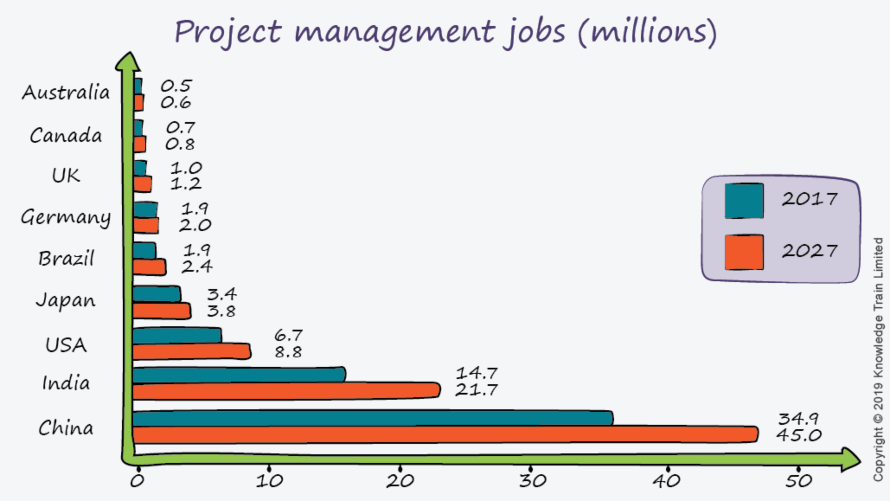Project management qualifications and professional recognition
Project management qualifications are highly recognised in the management profession. These professional qualifications demonstrate essential project management expertise and project management experience. Project management accreditations, such as PRINCE2, PMP, and Agile Project Management, are offered by leading bodies like the Project Management Institute and the Chartered Management Institute. Project management education includes project management degree programmes, project management diplomas, and project management qualifications courses.
Project management certifications and course options
Project management certifications, including project management certs and project management professional qualifications, cover a range of methodologies. These management qualifications focus on project management methods, risk management, and project portfolio management. Project management qualifications online, virtual classroom options, and distance learning courses are available from several providers.
Qualifications in management and their levels
Qualifications in management and qualifications in project management cover different levels, from foundation and practitioner to advanced. Qualifications for project managers and qualifications for project management include exams, training, and learning using internationally recognised standards. Project management credentials, such as PMP certification, PRINCE2 Practitioner, and APM qualifications, are valued by employers worldwide.
Project management degrees and course content
A project management degree or project management diploma provides the knowledge and skills to manage projects effectively. Project management courses are designed to prepare candidates for assessment and professional qualification exams. Methods such as Agile, PRINCE2, and traditional project management approaches are covered in detail, often using a mix of classroom and online delivery.
Achieving project management professional status
To gain project management professional status, individuals must demonstrate experience, pass exams, and meet education requirements. These qualifications for project management roles enhance career prospects by showing competence in project planning, delivery, and risk control. Management courses help develop leadership, teamwork, and communication skills, which are essential for project managers.
Project management qualifications are essential for professionals seeking to enhance their project management expertise.
Project management qualifications are essential for advancing your career, whether you pursue project management certification, explore project management degree programs, or enhance your skills through project management education.
Project management qualifications: An analytical review
Project management qualifications constitute formal recognitions of competency that bridge academic instruction, vocational training and employer expectations. This article examines typologies of awards, assessment modalities and the implications for employability and governance, drawing on frameworks that map learning outcomes to workplace performance and professional standards.
Historical development and policy context
The evolution of project management qualifications reflects the institutionalisation of competencies within professional bodies and universities. From apprentice-style vocational routes to the rise of accredited degree programmes and globally recognised certifications such as PMP and PRINCE2, credentialing has responded to demands for robust quality assurance, articulation agreements and credit transfer mechanisms across higher education and corporate training systems.
Typology of awards and credential pathways
A pragmatic typology distinguishes short vocational certificates, apprenticeship-based awards, professional certification and academic degrees. Vocational and apprenticeship routes emphasise workplace evidence, portfolios and assessed units; professional certification typically combines documented experience, examination and continuing professional development; and degree programmes foreground theory, research methods and advanced project governance.
Vocational certificates and apprenticeships
Apprenticeship models integrate on-the-job assessment, mentor evaluation and modular teaching, often aligned to national qualification frameworks and sector-specific standards such as construction or healthcare governance.
Professional certification and recertification
Professional credentials require records of practical experience, adherence to competency frameworks and periodic recertification through CPD, which together support mobility and employer assurance.
Curriculum design and core competencies
Effective curricula adopt constructive alignment: clear learning outcomes, valid summative assessment and formative feedback loops. Core competencies typically include scheduling, budget and procurement controls, risk management, stakeholder engagement, benefits realisation and quality assurance.
Specialist modules and sector relevance
Programs often offer specialist modules—lean project techniques, IT service management, healthcare project governance or public sector procurement—that map to employer competency demands and industry standards.
Pedagogy, delivery modes and assessment validity
Delivery modes range from intensive classroom provision to blended and fully online course models; each modality carries implications for student engagement, assessment security and equivalence of learning outcomes. Online learning and e-learning platforms facilitate flexible access but necessitate robust invigilation, authentic assessment tasks and moderated marking to maintain standards.
Assessment design and portfolios
Assessment should triangulate evidence: timed examinations, project deliverables, reflective portfolios and workplace artefacts such as risk registers and stakeholder analyses. Portfolios serve as durable evidence for awarding bodies and employers.
Quality assurance, accreditation and governance
Accreditation mechanisms require external moderation, standards bodies oversight and documented programme validation. Institutions should maintain transparent criteria, clear mapping to competency frameworks and mechanisms for employer feedback and course improvement.
Metrics and institutional accountability
Key quality metrics include graduate outcomes, employer satisfaction, pass rates and progression statistics; these indicators inform revalidation and continuous improvement processes.
Employability, labour markets and mobility
Project management qualifications influence employability by signalling competence and reducing hiring risk. Empirical studies indicate positive correlations between recognised credentials and clearer career trajectories, cross-border mobility and, frequently, enhanced salary prospects.
Employer expectations and role profiling
Employers should distinguish between training provision and accredited qualification conferment when specifying required credentials in role profiles, and align job descriptions with competency frameworks to ensure transparent selection criteria.
Integration of variations and semantic breadth
This analysis embeds semantic variations—project management certification, project certifications, certifications for project management and project manager qualifications—throughout the narrative to support discoverability and topical relevance. Such variation assists search systems in recognising topical breadth and in aligning content with user intent across academic and vocational queries.
Application in different contexts
Sectoral application—finance, healthcare, IT and construction—illustrates how syllabus design and assessment requisites change with regulatory context and organisational complexity, while pathways such as apprenticeships or degrees offer distinct articulation and progression options.
Limitations, risks and recommendations
Policy-makers and institutions must manage risks of credential inflation and market fragmentation by enforcing quality assurance, clearer credit recognition processes and employer engagement in syllabus design. Recommendations include stronger alignment between academic standards and vocational units, transparent articulation agreements and continued oversight by recognised bodies.
Practical recommendations
Design programmes with authentic assessment, require documented workplace evidence, mandate mentor supervision for apprenticeship routes and adopt robust external moderation to safeguard academic integrity and occupational relevance.
Conclusion
Project management qualifications remain a pivotal mechanism for translating education into workplace competence. By combining rigorous assessment, mapped competency frameworks and transparent accreditation, providers can ensure that awards carry credible signalling value for employers and meaningful learning outcomes for candidates.
For practitioners and institutions alike, the imperative is to balance flexibility in delivery—including virtual classroom approaches and blended learning—with uncompromised assessment validity, thus securing the long-term utility of project management qualifications.


